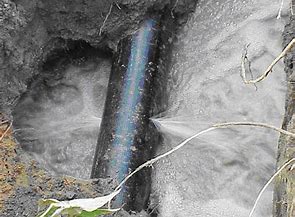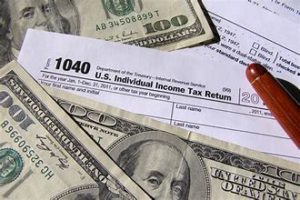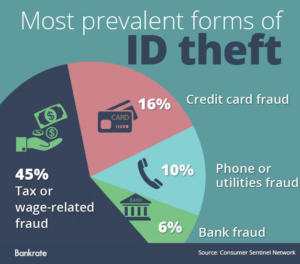This is the week that the IRS is estimated to process to filers. In the first quarter of every calendar year federal (and sometimes state) tax refunds are issued to qualified filers. In fact the average tax refund for the 2018 filing year (2017 return) was over $2,200.00. I’ve already spoken about how to ensure every dollar you can keep goes into your pocket each month, and not into the IRS coffers (until you file the next year’s return). Another issue, comes from the fact that the money received by many taxpayers is immediately spent paying down debt accrued the previous year. Some of that debt is from short-term overspending during the holidays, accounting for about 39% of Americans using the refund to clear that debt.
It is this cycle of annual debt that needs to be addressed, because if $1,000.00 of that refund was placed into a “baby” emergency fund, many Americans would not have to incur debt for “emergencies.” The stats are incredibly scary. The latest figure is that 78% of Americans live paycheck to paycheck. Almost 8 in 10. Following the logic, everyone knows at least a few people who are unable to cover even the smallest of budget hits without putting another bill in jeopardy. Additionally, a full 70% of Americans are in debt.
The recent government shutdown highlighted that for many Americans just treading water with money, they are one missed payday from being in financial distress. And we all saw the comments and memes about how government workers should have something put away or should be able to cover one month of expenses. Based on the statistics, 8 out of 10 cannot.
So, why am I telling you this? If you have a tax refund coming, and do not have $1000.00 saved for an emergency, you are not taking full benefit of the Uncle Sam Savings Plan. $1,000.00 goes a long way for car or home repairs, unexpected expenses, and other hits to the budget that throw a wrench in how the bills are paid. And once you put $1,000.00 away, be diligent in keeping it that way. Refill it if it gets used. Seriously. Mike and I had a pipe burst recently during the Polar Vortex, and we mopped up the water, grumbled a little, and called the plumber, knowing it could be covered from the emergency fund. (For Ramsey listeners, we are finishing baby step 2.)
Of course, $1,000.00 isn’t a “full” emergency fund, which is three to six months of expenses saved, but it is a good start to cover many, many of the instances where Murphy moved into the spare bedroom for a week. Of course, my next piece advice is to get out of debt as fast as you can, so YOU control your income, not some credit card company or bank. When you commit to payments, you promise to give them a share of your income each month, no matter what life throws at you. And I would strongly urge anyone getting the “average” refund to apply the $1200.00 over that emergency fund starter towards any outstanding debt.




 To make matters worse, in my humble opinion, the guardians of your credit report (and mysteriously calculated “score”) actually charge consumers hard earned dollars for access to their OWN information. The nerve! But my feelings aside, checking your credit report is an important part of taking control of your money. The Fair Credit Reporting Act, FCRA, authorizes one free credit report each year from each of the three credit reporting bureaus. There is only one link that is “federally certified” so do not click into any of the 34 ads on the way to
To make matters worse, in my humble opinion, the guardians of your credit report (and mysteriously calculated “score”) actually charge consumers hard earned dollars for access to their OWN information. The nerve! But my feelings aside, checking your credit report is an important part of taking control of your money. The Fair Credit Reporting Act, FCRA, authorizes one free credit report each year from each of the three credit reporting bureaus. There is only one link that is “federally certified” so do not click into any of the 34 ads on the way to